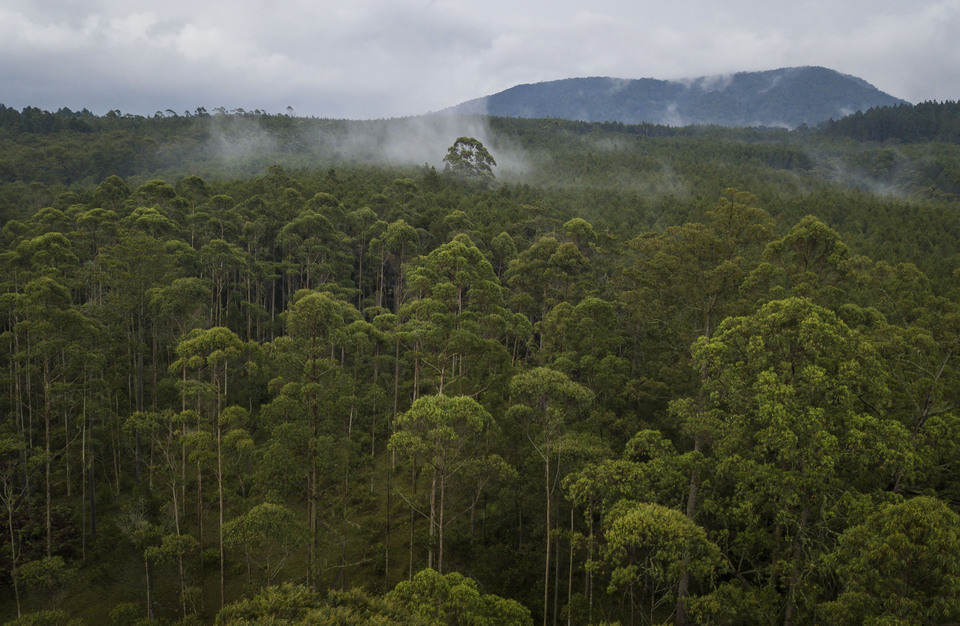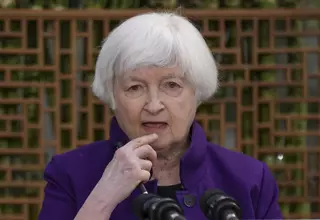Seeding Environmental and Economic Success with Nature-Based Solutions

The recent 26th UN Climate Change Conference (COP26) re-emphasized the need for global action to achieve net-zero emissions by 2050. The decade ahead will be particularly vital if we are to maintain global temperatures within 1.5ºC above pre-industrial levels and mitigate the worst impacts of climate change.
Breaching this goal and driving temperature rises above 2.5ºC could severely impact Southeast Asians. Sea level rises to provide just one extreme example of the myriad impacts, with low-lying coastal regions home to 48 million Southeast Asian citizens at risk of being flooded by daily high tides by 2050.
Despite essential climate ambitions, there is no silver bullet through which businesses can instantly eliminate their carbon footprint. It’s estimated that 35 gigatons of CO2 equivalent (GtCO2e) need to be abated globally by 2030 to keep within the 1.5ºC pathway, with 70-80 percent of that target possible with existing or emerging mitigation technologies, leaving a gap of ~7.5 GtCO2e.
While our hunt for further technological innovation continues, nature-based solutions (NBS) offer an immediately available solution to address the remaining emissions. Nature conservation, restoration, and sustainable ecosystems enable carbon sequestration through natural means to compensate for man-made global emissions.
Every ton of certified carbon equivalent removed in line with strict guidelines around additionality, leakage, and permanence becomes a ‘carbon credit,’ with credits sold or traded through a verified and voluntary carbon market.
Indonesia holds an estimated ~20 percent of the world’s global potential for NBS, underlining significant opportunities in this connected carbon ecosystem. The country already boasts an emerging carbon ecosystem and is the largest global provider of NBS carbon credits today. However, further work must be undertaken if Indonesia is to realize the full potential of this resource.
Opportunity and implementation in Indonesia
Indonesia’s NBS potential of 1.4 GtCO2e per year makes it a world leader, offering significant domestic and international carbon solutions if appropriately managed. This ecosystem will need to be scaled rapidly in order to support global ambitions. Boston Consulting Group (BCG) estimates that Indonesia’s voluntary carbon credit market could achieve a value of Rp 60-85 trillion ($4-6 billion) by 2030.
COP26 set the global stage for further carbon market development, with rules established around Article 6 of the Paris Agreement to provide a critical lever that shapes and scales international carbon markets by providing a mechanism to avoid double-counting.
Indonesia itself recently passed a decree on carbon pricing, reflecting an important turning point that further supports the establishment of robust and sustainable carbon markets within the country.
BCG’s experience indicates three key building blocks to make this journey a success. Firstly, establishing appropriate governance is key. Indonesia should provide the right framework through local regulation necessary to build investor confidence backed by a robust measurement, reporting, and verification (MRV) mechanism.
This is vital in order to ensure the global integrity of the market, maintaining high-quality carbon credits with appropriate monitoring and control that ensure permanence while tackling any risk of climate-ineffective ‘greenwashing.’
Second, efforts should be engaged to embed appropriate market architecture. This could include a regional exchange platform with appropriate liquidity, transparency on prices, and proper forward curves so investors and buyers can better anticipate prices into the future.
Finally, the right support infrastructure and ecosystem should be established. This must include supporting financing for NBS projects, with capital flows from domestic and global investors and financial institutions. This should be backed by support structures such as networks of specialized providers in carbon accounting, monitoring, and relevant legal expertise.
Inclusivity will be fundamental to the successful rollout of these markets. In Indonesia, that will mean engaging with indigenous communities, which make up approximately a quarter of the nation’s population.
New policies and regulations must reflect the rights of both indigenous and wider local populations, thinking through how to engage communities and ensure they not only input on proposals but financially and socially benefit from the implementation of NBS within their own areas.
Corporate participation in NBS
The role of corporates in carbon markets has traditionally only been seen from the demand point of view, largely buying carbon credits to offset their own emissions.
At BCG, we have identified three additional opportunities across the primary NBS ecosystem through which corporates and private and public organizations can unlock value through scaling up NBS while delivering material and short-term solutions to climate change mitigation.
The most relevant and critical opportunity is undertaking NBS projects as owners and developers. This is a particularly attractive opportunity for corporates in Indonesia who already boast significant land banks in forestry or plantations as part of their portfolio.
Indonesia’s NBS space is currently predominantly driven by smaller local players and non-profit organizations. Large companies with significant brand credibility, capabilities, resourcing, and potential land banks, are well-positioned to capture greater investment typically required to manage long timescales for forest project development.
Providing professional services to the carbon market offers another area of opportunity. These services can range from certification and registration to project advisory. Foreign players currently dominate this segment, and developing specific local expertise will provide an opportunity for domestic champions to thrive in this space while supporting the scale-out of the wider ecosystem.
Finally, the potential for marketing, trading, and retailing carbon credits for NBS services will be key in an evolving carbon market in Indonesia. Given the significance of Indonesian participation in a global carbon ecosystem, domestic companies have a huge opportunity to unlock value through participation in these activities. Ultimately, this could place Indonesia as a global hub of the international carbon trading network.
Developing roots of growth
Climate change is the most important global issue of our time. Its projected impacts far outweigh that of the COVID-19 pandemic, highlighting in clear terms the challenges we face.
Addressing those challenges will require concerted global cooperation and innovative solutions. Nature-based solutions and effective carbon markets will not solve this crisis alone, but they are a fundamental building block in a sustainable path to achieving our climate ambitions.
Indonesia will play a pivotal role in that success, and one which opens up win-win opportunities for domestic stakeholders. Corporates are positioned to contribute significantly to the scale-up of this carbon ecosystem, both as consumers of carbon credits and effective NBS project providers.
Domestic companies are already well-positioned to assume this role, given the huge nature-based potential of Indonesia. With the right focus on building capabilities—backed by strong governance and infrastructure development—Indonesia can be at the forefront of these global solutions, reaping both the environmental and economic benefits of NBS.
NBS offers a pathway for Indonesia to take control of its own climate destiny, boosting economic opportunities emerging from carbon markets and providing a valuable contribution to global climate solutions.
Daniel Oehling is a partner, and Marc Schmidt is the managing director and a partner at Boston Consulting Group. Boston Consulting Group is the consultancy partner for the 2021 UN Climate Conference.
Tags: Keywords:POPULAR READS
Yellen Says Iran's Actions Could Cause Global 'Economic Spillovers'
Iran's missile attack on Israel early Sunday came in response to what it says was an Israeli strike on Iran's consulate in Syria.Prabowo Camp Cites ‘Procedural Error’ in Legal Challenge by Rival Candidates
The Constitutional Court's main task is to address alleged discrepancies in vote tallies, which neither of the plaintiffs challenged.Apple Wants to Increase Investments in Vietnam
Vietnam has become more important to Apple as the company seeks to diversify its supply chains away from China.China’s Top Diplomat Wang Yi to Visit Indonesia for Cooperation Talks
Chinese top diplomat Wang Yi will chair a policy coordination meeting aimed at strengthening Indonesia-China cooperation.President Jokowi Urges Global Restraint as Tensions Rise in the Middle East
President Joko "Jokowi" Widodo emphasized the importance of diplomatic efforts to prevent the escalation of conflict in the Middle EastPopular Tag
Most Popular






















